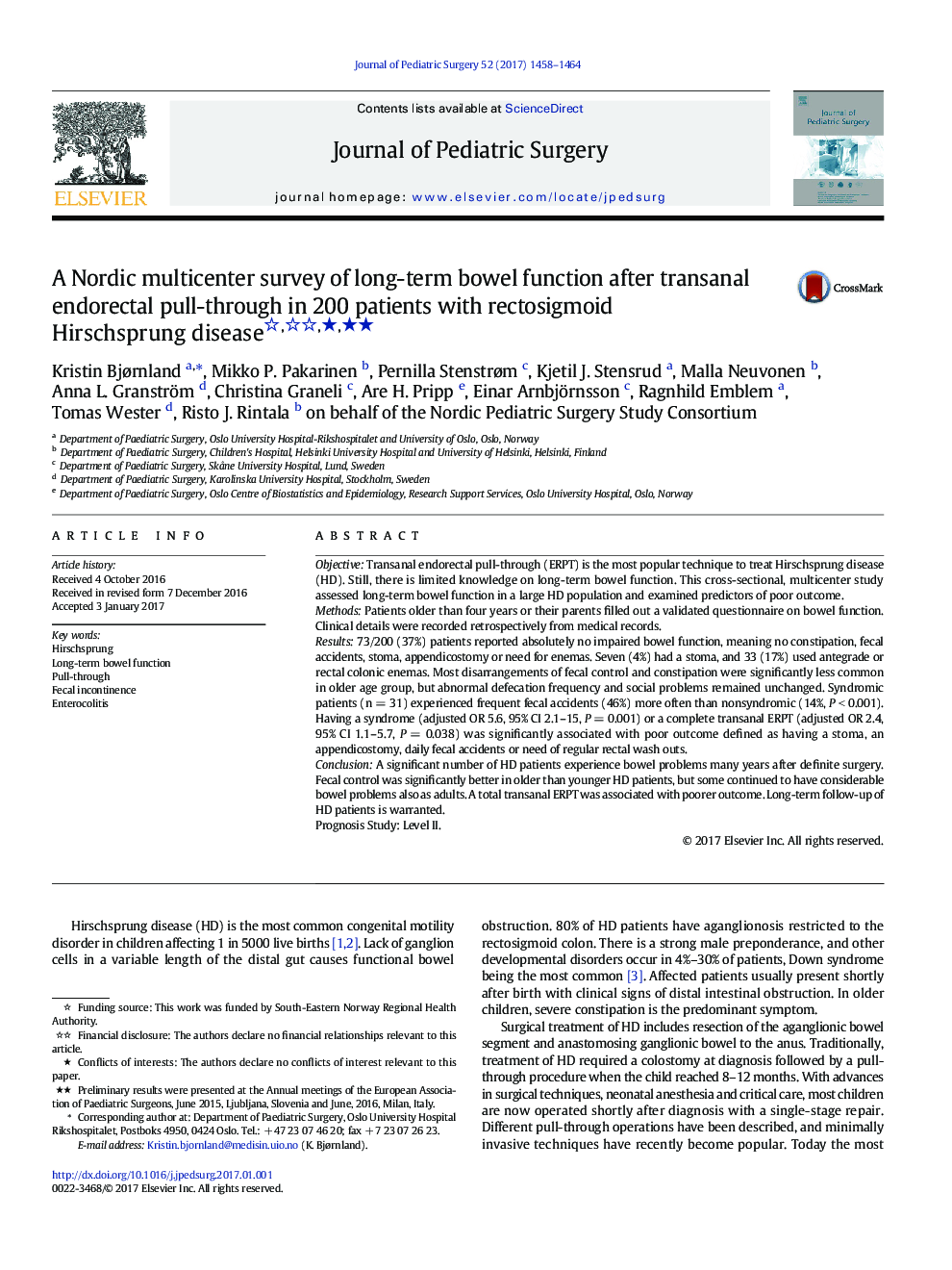| Article ID | Journal | Published Year | Pages | File Type |
|---|---|---|---|---|
| 5718286 | Journal of Pediatric Surgery | 2017 | 7 Pages |
ObjectiveTransanal endorectal pull-through (ERPT) is the most popular technique to treat Hirschsprung disease (HD). Still, there is limited knowledge on long-term bowel function. This cross-sectional, multicenter study assessed long-term bowel function in a large HD population and examined predictors of poor outcome.MethodsPatients older than four years or their parents filled out a validated questionnaire on bowel function. Clinical details were recorded retrospectively from medical records.Results73/200 (37%) patients reported absolutely no impaired bowel function, meaning no constipation, fecal accidents, stoma, appendicostomy or need for enemas. Seven (4%) had a stoma, and 33 (17%) used antegrade or rectal colonic enemas. Most disarrangements of fecal control and constipation were significantly less common in older age group, but abnormal defecation frequency and social problems remained unchanged. Syndromic patients (n = 31) experienced frequent fecal accidents (46%) more often than nonsyndromic (14%, P < 0.001). Having a syndrome (adjusted OR 5.6, 95% CI 2.1-15, P = 0.001) or a complete transanal ERPT (adjusted OR 2.4, 95% CI 1.1-5.7, P = 0.038) was significantly associated with poor outcome defined as having a stoma, an appendicostomy, daily fecal accidents or need of regular rectal wash outs.ConclusionA significant number of HD patients experience bowel problems many years after definite surgery. Fecal control was significantly better in older than younger HD patients, but some continued to have considerable bowel problems also as adults. A total transanal ERPT was associated with poorer outcome. Long-term follow-up of HD patients is warranted.Prognosis Study: Level II.
